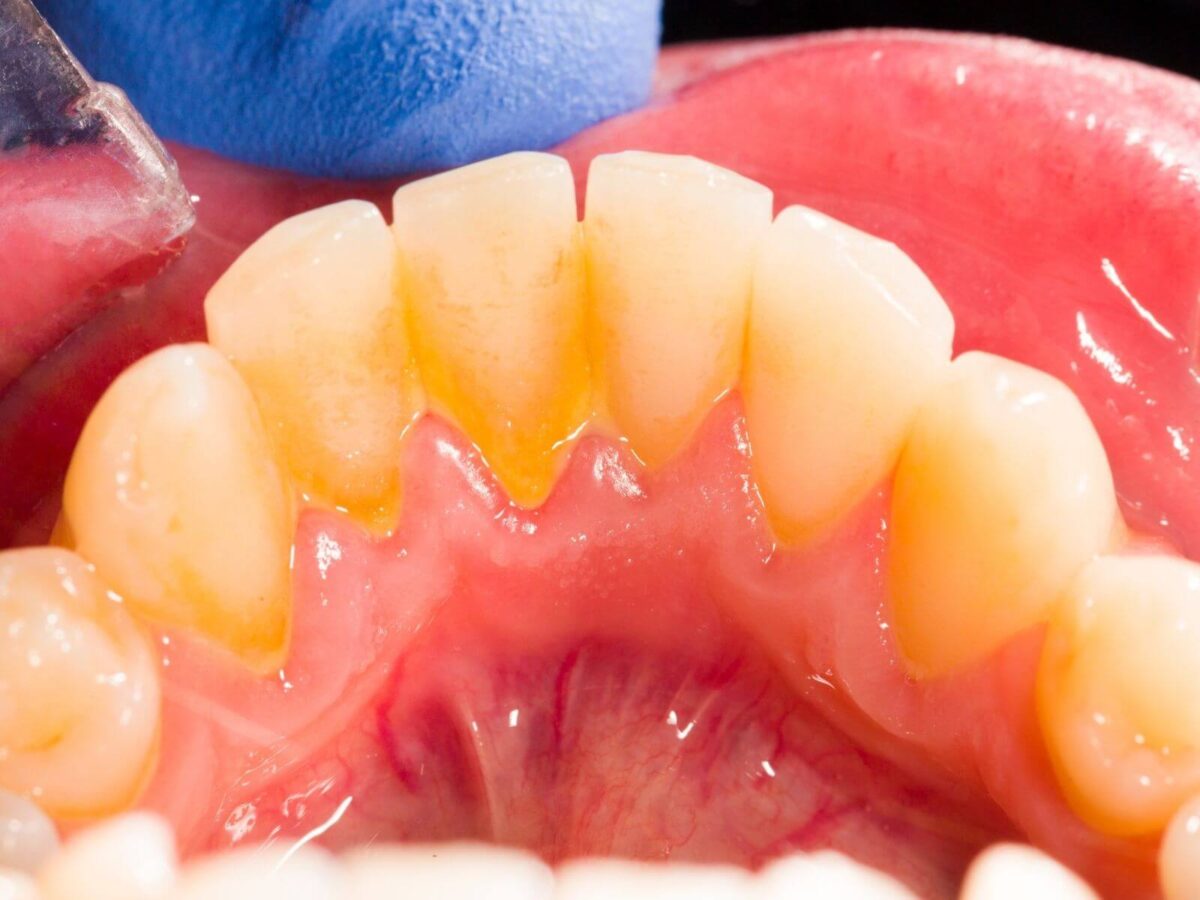Orthodontists found out that 68% of the adults were found to have dental tartar or calculus. Dental tartar is a calcium deposit that builds and settles on the teeth or gum line. If this deposit is not removed by brushing and flossing, it calcifies and turns into tartar in 24-72 hours. In cases where tartar forms on the teeth, it becomes difficult to brush and floss, which leads to cavities, gum disease, and bad breath. Tartar is extremely bonded with tooth enamel and cannot be removed by normal brushing and flossing; it can only be done by a dentist.
What is Plaque and Tartar?
Say dental plaque, and everybody will say they have it on their teeth. That’s why this soft, sticky film that forms on the teeth after bacteria have interacted with saliva and food is so dangerous.
Food or drink poisons secrete and create acids after eating or drinking. This is especially the case when you eat or take anything containing sugar, be it in the raw state, processed, or sugary drinks.
There is nothing as important as oral hygiene, which helps to avoid the formation of tartar. However, if you are not brushing and flossing daily, plaque sits on your teeth far longer than it should. When this occurs, it forms an emulsion with mineral particles in saliva, later developing into tartar or calculus.
What Causes Dental Plaque and Tartar?
If saliva, food, and fluids mix with oral bacteria, it forms plaque that sets on the teeth and at the gum line where teeth and gums meet.
Some foods known to trigger the development of the above dental plaque formation and growth include those foods that contain carbohydrates of sugar and starches, such as soft drinks, candies, etc.
Consumption of starchy and sugary products such as cakes, sweets, sweets, and fruits results in excessive plaque bacteria. Such bacteria form plaque that causes gingivitis caries and advanced gum disease. Hence, taking steps toward treatment and control is important.
Tartar forms in the area between the teeth and the gum margins. You cannot completely avoid it, but you should take proper dental hygiene practices to prevent its build-up.
What is Gum Disease, and How It Occurs?
Gum disease refers to an infection that may occur in the gum and the tissues that are supporting the teeth. The main cause is plaque, a soft deposit on the teeth due to bacterial growth. Tartar rubs on the gums and makes them turn red and swollen. They may also bleed sometimes. If left untreated, however, it may progress to periodontal disease, an infection, and inflammation of the tissues and bones that support your teeth. Gum disease, if not treated, results in losing one’s teeth.
Gum disease is not reversible but is divided into two stages; the first stage is called gingivitis, and the second one is periodontitis. In the initial stages of gum disease, symptoms include redness, bleeding gums, and stench on the breath. Periodontal disease is divided into two categories, gingivitis, and periodontitis, with the former turning into the latter if not treated. This is associated with increased fold thickness of attached gingiva, periodontal bone loss, gingival recession, and ultimately, tooth shedding where untreated.
How Scaling of Teeth Prevents Gum Disease?
1. Removes plaque buildup:
Pulpa is a layer that forms at the bottom of tea and which, due to its stickiness, collects bacteria. Scaling removes this plaque so that it cannot cause gum disease to start in the first place.
2. Cleans below the gum line:
Unfortunately, most of the time, even when done thoroughly, manual brushing is incapable of removing all the plaque that has formed at or below the gum lines. Teeth scaling can easily remove this plaque, which helps avoid additional problems.
3. Prevents tartar buildup:
Gingival index plaque or tartar calculus is a hard deposit on the teeth that occurs when the Dental Plaque becomes hard. This tartar can bring inflammation to the gum, which is an initial stage of gum disease. Scalings remove these deposits and are useful in halting the further progress of gum diseases.
4. Reduces pocket depths:
When plaque starts growing around the teeth and gums, it then becomes embedded in small spaces between the said structures. Further, in the course of the infection, these pockets deepen to form advanced gum disease. Teeth scaling is done to remove this hardy surface deposit and plaque from those pockets and simultaneously bring down the depth of such pockets.
5. Improves overall health:
Other conditions associated with gum disease include heart disease and diseases that affect the blood vessels, known as stroke. Apart from being able to maintain personal hygiene, getting a teeth scaling reduces the chances of gum disease, hence promoting general health.
6. Maintains a bright smile:
Teeth scaling can effectively eliminate the plaque contributing to teeth discoloration to help you maintain a bright and healthy look for your teeth.
7. Prevents bad breath:
Meanwhile, plaque formation or tartar formation is one of the main reasons for bad breath due to the substances being produced by bacteria existing on it. Teeth scaling also effectively eliminates this plaque to ensure that the bad breath does not develop.
What is Tooth Decay and How Can Teeth Scaling Benefit?
Tooth decay refers to the gradual buildup of bacteria, acid, and other food particles to form plaque in the mouth. As plaque slowly forms on the teeth, it erodes the tooth surface, leading to the formation of small holes, also called cavities. This condition causes toothache, infection, and, in the worst case, loss of teeth.
This attempts to remove plaque and tartar, common reasons they decay. Teeth scaling entails the use of special dental instruments to remove the plaque from the surface of the tooth and in between the teeth and the gums.
They are normally executed by a trained dentist or periodontist who will use an ultrasonic scraper to disaggregate both the film and tartar using sound. The procedure may be followed by using a fluoridated paste to enhance the look of the teeth.
What Should You Expect During Plaque and Tarter Removal?
- Teeth scaling can be considered safe, and the pain during the operation is usually quite low.
- The first thing your dentist will do to you is to tell you to extend your jaw as far as possible so that he or she can have a clear view of your teeth.
- They will then use special pliers to scrape the space between the teeth and along the gum line to eliminate the plaque and food particles.
- They may also have an ultrasonic device making sound wave frequencies useful in breaking up the plaque and tartar deposits, especially in the hard-to-reach regions in the mouth.
- After your scaling process, your dentist will then polish your teeth using special toothpaste to make them more clean and smooth.
- Finally, depending on your filling, your dentist may suggest the application of fluoride to the teeth to bolster their overall health and ability to resist future decay.
- After the procedure, Your mouth should not be sore or sensitive, and you are free to eat what you want.
- Nonetheless, for any feelings of pain or discomfort after the procedure in question, he/she ought to consult with the dentist.
Wrapping up
To help maintain healthy teeth and gums after a teeth scaling procedure, you should always brush and floss regularly and visit your dentist at Rockdale Dental for regular checkups. This will help ensure that your mouth stays in top shape and prevent any further buildup of plaque or tartar.




